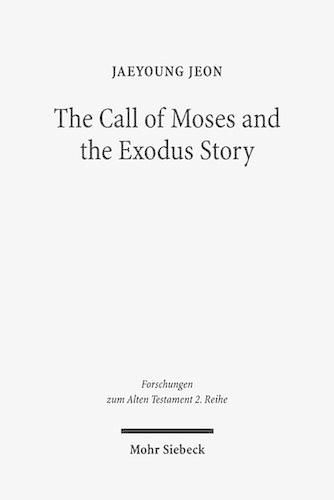Readings Newsletter
Become a Readings Member to make your shopping experience even easier.
Sign in or sign up for free!
You’re not far away from qualifying for FREE standard shipping within Australia
You’ve qualified for FREE standard shipping within Australia
The cart is loading…






Jaeyoung Jeon examines and assesses recently suggested models for the formation of the Pentateuch through a redactional-critical analysis of the Call of Moses (Exod. 3-4) and the Exodus story (Exod. 5-13). He observes that Exod. 3-4 was formed through a series of stages of Deuteronomistic composition and redaction, to which some post-Priestly additions were made. Comparative analysis suggests that the elements of Deuteronomistic formation precede P and that the direction of influence is from the non-P narrative (Exod. 3-4) to the P call narrative (Exod. 6). Jeon also shows that although some of the literary layers in Exod. 3-4 extend through the Exodus story (Exod. 5-13), the present form of the latter has been shaped by a post-Deuteronomistic but pre-Priestly composition based on an earlier proto-Exodus story. He therefore concludes that the Pentateuch or Hexateuch might be the product of a more complicated process of development than the current models describe.
$9.00 standard shipping within Australia
FREE standard shipping within Australia for orders over $100.00
Express & International shipping calculated at checkout
Jaeyoung Jeon examines and assesses recently suggested models for the formation of the Pentateuch through a redactional-critical analysis of the Call of Moses (Exod. 3-4) and the Exodus story (Exod. 5-13). He observes that Exod. 3-4 was formed through a series of stages of Deuteronomistic composition and redaction, to which some post-Priestly additions were made. Comparative analysis suggests that the elements of Deuteronomistic formation precede P and that the direction of influence is from the non-P narrative (Exod. 3-4) to the P call narrative (Exod. 6). Jeon also shows that although some of the literary layers in Exod. 3-4 extend through the Exodus story (Exod. 5-13), the present form of the latter has been shaped by a post-Deuteronomistic but pre-Priestly composition based on an earlier proto-Exodus story. He therefore concludes that the Pentateuch or Hexateuch might be the product of a more complicated process of development than the current models describe.